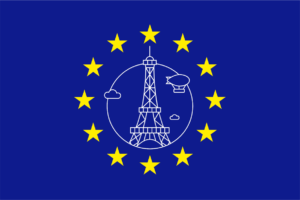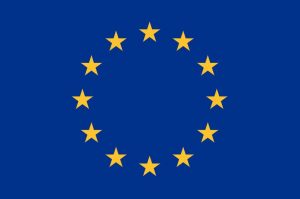EAA Case Study: France

The European Accessibility Act has galvanized many European countries and The DAISY Consortium has been pleased to take part in many interesting and collaborative conversations with partners, members and interested parties.
Each country has their own story and their own unique set of experiences in approach to the EAA and we are attempting to capture some of these in our series of case studies. The more we can share and learn from each other, the better prepared we hope everyone will be.
France, An Overview
Books have always played a major role in spreading ideas, enriching our culture and encouraging lively debate. Access to books remains a fundamental human right and this right is reinforced by the European Accessibility Act (EAA; Directive 2019/882) where the ebook ecosystem must comply with new accessibility obligations for products and services. Ebooks facilitate access to content for people who are print disabled: people with vision impairment or sight loss, people who have cognitive disabilities and people for whom a motor disability can prevent them from reading print.
In France, the law of 9 March 2023 transposed the EAA into law, and its regulations will soon be available. This standard-setting work is the result of numerous consultations with all stakeholders, from ebook professionals to representatives of people with disabilities.
We Got Started Early
In 2018 a steering committee was formed for the development of accessible digital books (COPIL LINA25), bringing together public authorities, the many areas of the digital book industry and associations representing people with disabilities. One of the first action points was to develop a strategic plan to help prepare the sector for the EAA in June 2025.
This strategic plan was shortlisted for the 2021 International Award for Excellence in Accessible Publishing from the Accessible Books Consortium (ABC).
The Entire Ecosystem is Responsible
France has focused on the vital role that everyone in the digital book industry must play. Every organization within the ecosystem is responsible for conformance to the new accessibility legislation—not only retailers.
Challenges and Solutions
Several challenges have been identified by the steering committee. These include:
Necessary Clarifications to Ebook Provisions Within the Directive
A few ebook provisions still need to be clarified within the directive. L’Autorité de régulation de la communication audiovisuelle et numérique (ARCOM) has been appointed as the authority responsible for clarifying these provisions, working with professionals in the sector and representatives of the disability community. ARCOM is also empowered to investigate and record violations.
It is expected that companies will call upon ARCOM to interpret accessibility rules laid down by the EAA, particularly where there are still a few grey areas, e.g. the assessment of disproportionate burden.
Awareness-Raising and Training
The steering committee has recognized the need to raise awareness about the EAA obligations and, in April 2023, set up a working group, led by the French National Association for Publishers (SNE). This working group is concentrating on:
- funding for training projects
- disseminating good practices via awareness-raising
- promoting technical guidelines
- supporting the activities of the inter-ministerial steering committee for the development of born-accessible digital books
The aim is to encourage all professionals in the digital book sector to improve their practices, whether or not they are directly concerned with the obligations of the directive.
Activites of the French Publishing Industry
The “Normes & standards” group of the SNE has been working on technical accessibility guidelines for professionals in the ebook sector. Of particular note is the Technical Charter for the production of born-accessible EPUBs as well as a summary of the accessibility of images in EPUBs.
Business events for ebook publishers are regularly organized:
- Assises du livre numérique is an annual meeting to discuss publishing strategy in the digital age. Organized by the SNE, accessibility has been a burning topic for at least 7 years.
- The annual Digital Publishing Summit, organized by EDRLab and the Readium Foundation, presents cutting-edge technologies that change the way digital content is produced, distributed and read. The 2023 edition devoted a significant part of its program to accessibility issues.
Financial and Technical Support
In order to estimate the additional costs required to produce accessible digital books, the French Ministry of Culture conducted an impact study with Accenture in early 2022. Specific findings included:
- To convert digital books published before 28 June 2025 into accessible files, the additional cost ranges between 49 and 98 million euros at the French industry level.
- For the production of new digital books published after 28 June 2025, the additional cost would be between 2.4 and 5.6 million euros per year at the industry level.
These costs vary depending on file structuring upgrades and the writing of alternative texts to images.
The public authorities have committed to providing financial assistance to the ebooks industry to ensure the production of a large of number born-accessible digital books.
The Accessible Backlist eBooks Lab (ABELab) project, funded by the European Creative Europe fund and co-lead by EDRLab, the LIA Foundation and the Royal Library of the Netherlands, aims to clarify the cost of accessibility by type of books. ABELab provides guidelines to European publishers for the conversion of their digital book ‘stock’. This is an 18-month research and development project, running from January 2023 to June 2024.
Accessibility of Education Materials
The accessibility of education materials raises strong political expectations from all stakeholders.
A working group, led by the Ministry of National Education and Youth, will work in the following months on making education content accessible. This group will encourage collaboration between public authorities and educational publishers, working on accessibility guidance for teachers and parents to clarify needs and identify tools available.
At the same time, the Ministry of Higher Education and Research is also working on accessibility guidelines for students and researchers.
Making Accessible Ebooks Discoverable
EDRLab leads a project focused on informing users about accessibility features that are available to them within ebooks. In the first instance, online booksellers and national lending websites need to be provided with tools that can help them improve the quality of services they provide to people with disabilities. By involving members in research work, EDRLab has fostered useful debate on accessibility issues.
These activities have resulted in 2 recommendations:
- To inform readers about how they can find relevant accessible information about ebooks
- To spread good practice within the ebook ecosystem, including authors, publishers, distributors and booksellers, about how to describe accessibility features within ebook content.
In addition, at the Inter-ministerial Committee on Disability held in October 2022, the Government launched two projects to give disabled people access to reading material: the creation of a national platform for accessible publishing and a production strategy for adapted books. This national platform will enable users to find, on a single online interface, all born-accessible or adapted books.
Technical Standards
France recognizes the two W3C international technical standards:
Our thanks to EDRLab & Direction générale des médias et des industries culturelles (ministère de la Culture) for this case-study on the work being undertaken in France. If you are interested in taking part in a similar case-study please contact us for further information.


 The European Accessibility Act (EAA) is an EU directive establishing accessibility targets that must be met by many different types of products and services to strengthen the rights of people with disabilities. It is relevant for the publishing industry as it includes ebooks, dedicated reading software, ereading devices and ecommerce sites.
The European Accessibility Act (EAA) is an EU directive establishing accessibility targets that must be met by many different types of products and services to strengthen the rights of people with disabilities. It is relevant for the publishing industry as it includes ebooks, dedicated reading software, ereading devices and ecommerce sites.